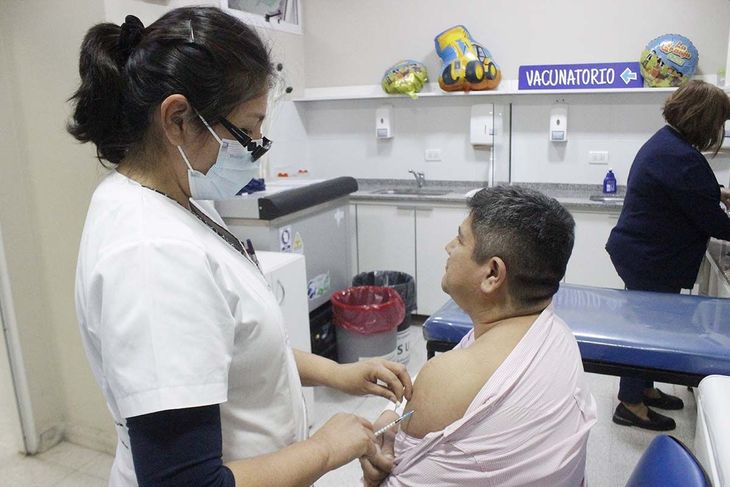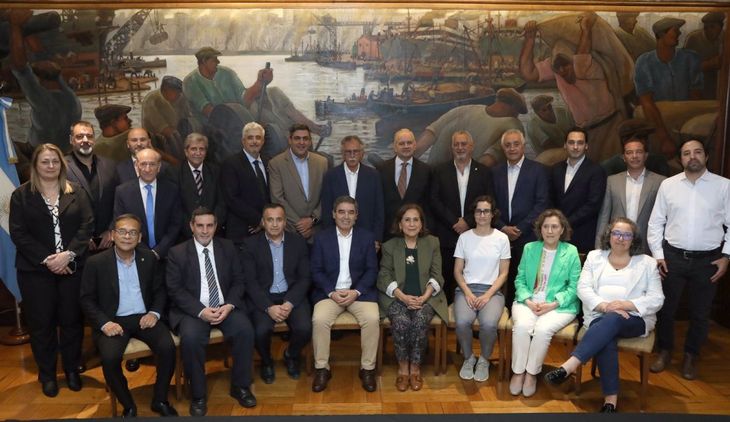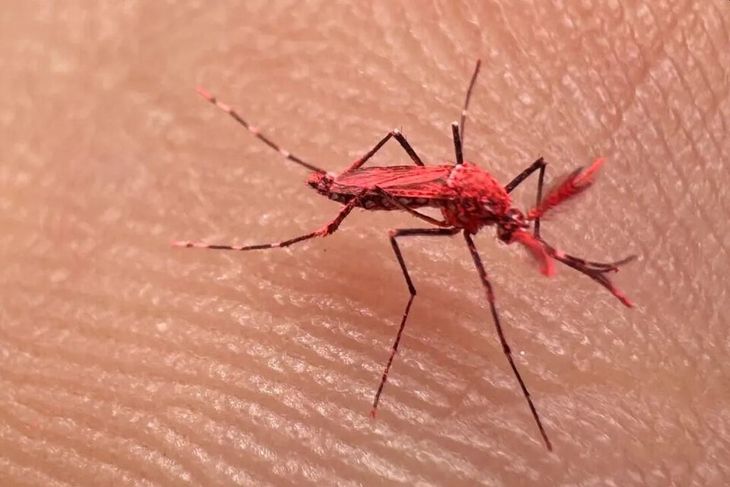According to data from the Ministry of Health of the Nation, between the end of July 2023 and mid-April 2024 301 deaths from dengue were recorded in Argentina, with a peak of 56,398 cases in week 12 of the year. The epidemic was centered in the north, which was the most affected region.
Vaccination campaigns advance
This Tuesday, at the Rodolfo Rossi hospital in La Plata, Axel Kicillof The provincial vaccination campaign against dengue began, in a day in which the Buenos Aires Minister of Health also participated, Nicholas Kreplak; the local mayor, Julio Alak; and the executive director of the hospital, Cecilia Jaschek. It is aimed at people between 15 and 59 years old who had the disease during 2023 and 2024 in the metropolitan region of Buenos Aires.
The first stage will take place between October 22 and 28, while there will be a second batch between October 28 and November 3. “We decided early to acquire vaccines and intensify the prevention and response campaign in the province,” commented Governor Kicillof. Last September, the Buenos Aires administration had announced the acquisition of 500 thousand vaccines against the disease.
Dengue vaccine PBA.jpg
The Province of Buenos Aires began vaccinating against dengue.
The City of Buenos AiresMeanwhile, he presented an action plan divided into four stages, which included the purchase of 60,000 vaccines “in the face of increased concern” and “so as not to lose the appropriate time window.” Following national guidelines, it began with adolescents between 15 and 19 years old; then it will gradually advance with young people from 20 to 29 years old and, finally, with adults from 30 to 39 years old. Shifts began to be delivered virtually on September 18. There are 18 vaccination centers operating in the district.
“The national government made the decision to vaccinate starting in the northwest and northeast with boys and girls between 15 and 20 years old. We are going to follow this guideline as we monitor the outbreaks year by year and the scientific knowledge that we acquire year by year. per year”, the Buenos Aires Minister of Health stated, Fernan Quiros.
For its part, in Santa Fe, the governor Maximiliano Pullaro launched “Dengue Objective”, an ambitious inter-ministerial plan, which involved the disbursement of $8,000 million. The program began on September 9 and is currently in its second stage, which covers Health, police and Fire personnel between 20 and 19 years old. The goal is to reach 80 thousand vaccinated people. For now, that figure is just 10 thousand.
“We will surely have greater adherence in the age group of 40 or more because the history of vaccination for the oldest is stronger than in those between 20 and 39 years old. We are sure that we will have greater demand,” explained the Secretary of Health. santafesina, Andrea Uboldi.
Dengue vaccine.jpg

The provinces accelerate vaccination against dengue.
At par, Cordova acquired 150 thousand dengue vaccines and began its immunization plan at the end of September. It consists of the application of two doses and its target population is people between 17 and 59 years old who have had dengue, with a hospitalization of more than 24 hours, that is, severe dengue. The registration process is carried out through the Digital Citizen platform (CiDi).
In the north, Jump incorporated 6,000 quadrivalent vaccines to advance its targeted vaccination strategy and complement the previously acquired doses. They were distributed in the departments of San Martín, Orán, Rivadavia, Anta, Güemes, Rosario de la Frontera and Metán. They began to be applied on September 28.
“It will begin with the population between 15 and 19 years old and will advance in a dynamic, progressive and staggered manner in stages, according to the availability of vaccines and according to the strategy implemented by Salta, which has already inoculated 20 thousand people with doses that were acquired by the Government at the beginning of this year”, explained the head of the Immunization program, Adriana Jure.
For his part, the Tucumán Osvaldo Jaldo asked to prepare for a “hot summer, with many mosquitoes and dengue.” In this framework, he announced the authorization of the vaccine for those between 20 and 24 years old, after having vaccinated the age group that goes from 15 to 19 years old. Given this scenario, the president stressed that “that is why it is better that we are all vaccinated.”
Ministers of Health COFESa.jpg

Ministers from all over the country met at the Federal Health Council.
This Monday, the ministers of all the provinces and the City met at the Federal Health Council (COFESA), which was hosted by the new head of the national health portfolio, Mario Lugoneswho replaced Mario Russo in office.
From Nación they reiterated that, according to their perspective, “the vaccine is not the main strategy to prevent dengue.” “Following the recommendations of PAHO/WHO and CoNaIn, it is agreed to advance focused vaccination strategies in specific populations, in a dynamic, progressive and staggered manner according to vaccine availability and epidemiological situation.”they said.
Sterilized mosquitoes: particular experience in Mendoza
One of the most striking experiences in the fight against dengue takes place in Mendoza. There they were released sterilized mosquitoes with the aim of attacking the reproduction of the aedes aegypti. It is a first motorized test by the Institute of Health and Agricultural Quality of Mendoza (ISCAMEN), which released 10 thousand of these insects in the Bermejo neighborhood of Guaymallén.
As females usually reproduce only once in their lives, the objective of these intervened mosquitoes, whose peculiarity is to be red, is to copulate with them, reducing the fertility of the natural population.
Red mosquito mendoza.jpg

The sterilized mosquitoes that were released in Mendoza are red to prevent people from killing them.
From ISCAMEN they specified that the strategy is part of a validation project and evaluation of the Sterile Insect Technique (SIT) for the development of Aedes aegypti mosquitoes. “The SIT is a biological control method that proposes the use of insects of the same species, but sterilized, to control its own population. Mendoza has been a pioneer at the national level, in the implementation of the SIT for the control of agricultural pests” , they pointed out.
In 2019, ISCAMEN and the International Atomic Energy Agency (AIEA), along with 19 other countries, signed an agreement to continue the development of the Sterile Insect Technique of this mosquito and learn about the behavioral characteristics of its behavior in the field. . The organization detailed that the first results of the test will be known in November.
Source: Ambito




